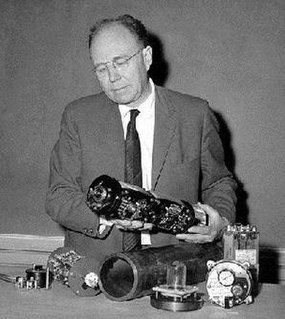A Quote by W. Eugene Smith
I am constantly torn between the attitude of the conscientious journalist who is a recorder and interpreter of the facts and of the creative artist who often is necessarily at poetic odds with the literal facts.
Related Quotes
I am an idealist. I often feel I would like to be an artist in an ivory tower. Yet it is imperative that I speak to people, so I must desert that ivory tower. To do this, I am a journalist - a photojournalist. But I am always torn between the attitude of the journalist, who is a recorder of facts, and the artist, who is often necessarily at odds with the facts. My principle concern is for honesty, above all honesty with myself.
[The scientist] believes passionately in facts, in measured facts. He believes there are no bad facts, that all facts are good facts, though they may be facts about bad things, and his intellectual satisfaction can come only from the acquisition of accurately known facts, from their organization into a body of knowledge, in which the inter-relationship of the measured facts is the dominant consideration.
Facts are neutral until human beings add their own meaning to those facts. People make their decisions based on what the facts mean to them, not on the facts themselves. The meaning they add to facts depends on their current story … facts are not terribly useful to influencing others. People don’t need new facts—they need a new story.
What are the facts? Again and again and again – what are the facts? Shun wishful thinking, ignore divine revelation, forget what “the stars foretell,” avoid opinion, care not what the neighbors think, never mind the unguessable “verdict of history” – what are the facts, and to how many decimal places? You pilot always into an unknown future; facts are your single clue. Get the facts!
No theory ever agrees with all the facts in its domain, yet it is not always the theory that is to blame. Facts are constituted by older ideologies, and a clash between facts and theories may be proof of progress. It is also a first step in our attempt to find the principles implicit in familiar observational notions.
Appearances are not reality; but they often can be a convincing alternative to it. You can control appearances most of the time, but facts are what they are. When the facts are too sharp, you can craft a cheerful version of the situation and cover the facts the way that you can covered a battered old four-slice toaster with a knitted cozy featuring images of kittens.



































